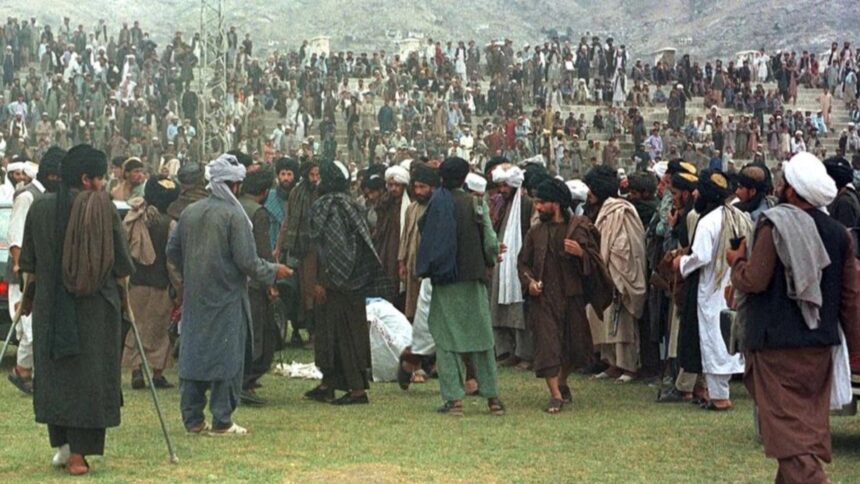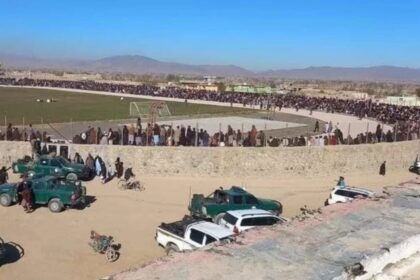RASC News Agency: Human rights organizations and independent media outlets have confirmed that the Taliban, within just one week, subjected at least 40 Afghanistanis to public flogging across various provinces revealing a disturbing escalation in state-sanctioned violence disguised as justice. In the latest reported incident, on Thursday, July 10, Taliban authorities in the Jaghori district of Ghazni province announced that a man had been sentenced to 30 lashes and 18 months’ imprisonment. This comes amid a broader pattern of corporal punishment being carried out in multiple regions, including Faryab, Kapisa, Paktika, and Kabul.
Earlier in the week, on July 7, Taliban judges in Kabul sentenced 25 men to prison terms and flogging ranging from 10 to 39 lashes each for allegedly selling alcohol and narcotics. Two additional individuals were publicly whipped in Faryab and Kapisa for charges of “extramarital relations” and “transporting alcoholic beverages,” respectively. According to Term Media, citing local sources, at least 40 people were subjected to public flogging between July 3 and July 10 alone. These acts form part of an accelerating campaign of brutal, extrajudicial punishments that starkly illustrate the Taliban’s draconian approach to governance one defined more by repression than by rule of law.
Human rights experts have denounced these corporal punishments as clear violations of international human rights norms and unequivocal instances of torture. The absence of fair and independent judicial proceedings renders such sentences legally void and morally indefensible under international law. “These punishments are not justice they are a performance of power,” said one legal analyst. “They function as instruments of state terror, designed to instill fear, enforce submission, and silence dissent, especially in a society already gripped by despair.”
Despite mounting global condemnation, the Taliban continue to flout international human rights obligations and dismiss the principles of due process, wielding violence as a mechanism of control. Analysts warn that the persistence of such tactics will further erode public trust, deepen psychological trauma among the population, and fuel Afghanistan’s mounting legitimacy crisis on the international stage. International legal observers argue that these acts of cruelty disproportionate, arbitrary, and often public are aimed less at upholding order and more at sustaining the Taliban’s rule through fear, especially in the absence of electoral legitimacy or constitutional governance.
The systemic use of flogging and other medieval punishments reflects the Taliban’s broader ideological rigidity and rejection of modern legal standards, casting serious doubts on their capacity to lead Afghanistan toward peace, justice, or stability.






